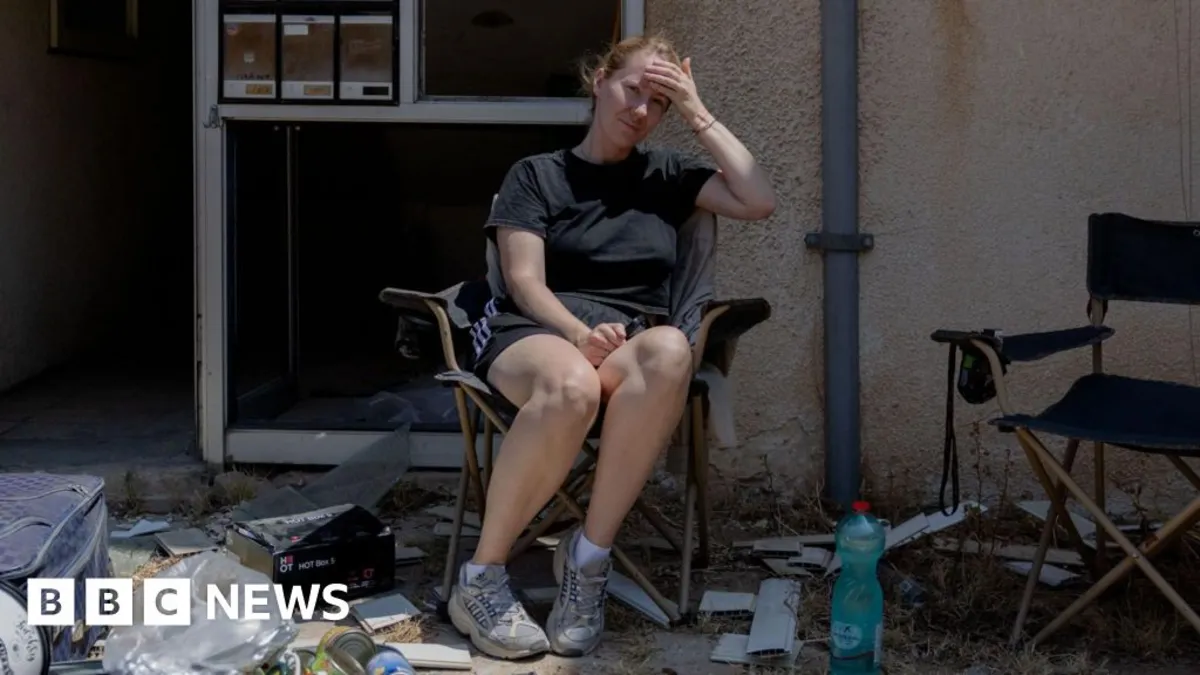
Bat Yam, located just south of Tel Aviv, has historically been a bastion of support for Israel's right-wing governing coalition. However, the early hours of Sunday morning brought a shocking turn of events when an Iranian missile struck a ten-storey residential building, resulting in the tragic loss of at least eight lives and trapping many others beneath rubble.
Despite the extensive damage caused by the missile strike, residents of Bat Yam have expressed unwavering support for Israel's military actions against Iran, which commenced on Friday. The military operations have targeted critical infrastructure, including nuclear facilities, missile sites, air defenses, an airport, and personnel associated with these programs. Veronica Osipchik, a 33-year-old resident living approximately 200 meters from the site, stated, "It needed to be done. But we didn't expect it to affect us like this."
Ms. Osipchik described the shocking aftermath, noting that the windows and shutters of her apartment were completely blown out, and nearly every building in the vicinity suffered similar destruction. "We were in shock," she shared, sitting on a camping chair next to a suitcase filled with food and toiletries, ready for the uncertain days ahead.
The ballistic missiles that struck Bat Yam are significantly more powerful than the rockets typically fired by Hamas and Hezbollah over the past year and a half, which are mostly intercepted by Israel's advanced air defense systems. Rescue teams worked tirelessly to free the first victims trapped under the rubble, while as late as Sunday afternoon, at least three individuals remained unaccounted for. Rescue paramedic Ori Lazarovich described the harrowing scene: "I saw fear in their eyes. People came out all grey, covered in soot and ash."
Avi, a 68-year-old lifelong Bat Yam resident who preferred not to disclose his surname, stressed the necessity of continuing military pressure on Iran, declaring, "We need to keep hitting Iran. Of course we have to keep going. Otherwise, they'll drop an atomic bomb on us. They're weak. We're much stronger." His sentiments were echoed by 18-year-old Emil Mahmudov, who remarked, "We should have done this sooner. That's what most Israelis think."
Israel's rationale for its assault on Iran centers on halting the country's nuclear program. For over a decade, successive Israeli governments have raised alarms about the Iranian regime's potential acquisition of nuclear weapons, a claim that Iran vehemently denies. Despite facing criticism over the ongoing conflict in Gaza, Israeli Prime Minister Benjamin Netanyahu has received backing from political rivals, including Benny Gantz, Avigdor Lieberman, and Yair Lapid, all of whom support military action against Iran.
Professor Yossi Mekelberg from Chatham House's Middle East Programme emphasized the historical support for preventing Iran from obtaining nuclear military capabilities. He elaborated, stating, "This is much bigger than fighting Hamas in Gaza or Hezbollah in Lebanon; it's evolving into a full-blown war." He also noted a growing sense of fatigue in Israel after enduring 20 months of conflict, warning that if casualties rise or if civilians are forced into prolonged sheltering, public support for the war could wane.
By Sunday afternoon, Itamar Ben Gvir, Israel's far-right national security minister recently sanctioned by the UK for inciting violence against Palestinians, arrived in Bat Yam to meet with mourners. Surrounded by a group of armed security personnel, he shook hands with shop owners, many of whom had suffered damage to their businesses from the blast.
As Bat Yam grapples with the aftermath of this devastating missile strike, the community's response highlights the complex intersection of support for military action, the realities of conflict, and the enduring hope for security in an increasingly volatile region.